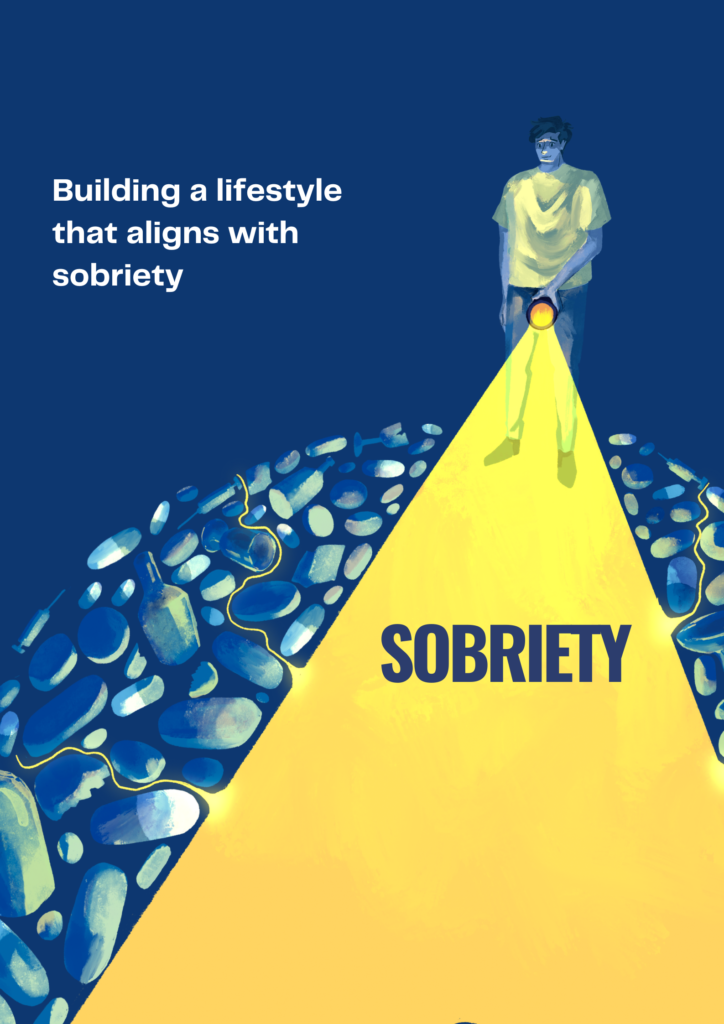
Building a lifestyle that aligns with sobriety is a crucial aspect of the recovery journey. It involves making intentional choices that support physical, emotional, and mental well-being while minimizing triggers that could lead to relapse. Here’s how individuals can build a lifestyle aligned with sobriety:
- Establishing Healthy Routines: Creating structured daily routines can provide stability and purpose, reducing the likelihood of engaging in substance use. This includes setting regular wake-up times, meal schedules, exercise routines, and bedtime rituals. Consistency in daily activities helps individuals stay focused on their recovery goals and maintain a sense of control over their lives.
- Engaging in Physical Activity: Regular exercise is not only beneficial for physical health but also plays a significant role in promoting mental well-being during recovery. Physical activity releases endorphins, which are natural mood lifters, helping to reduce stress, anxiety, and depression. Whether it’s going for a walk, practicing yoga, or hitting the gym, finding enjoyable ways to stay active can enhance overall quality of life and support sobriety.
- Cultivating Supportive Relationships: Building a strong support network is essential for maintaining sobriety. Surrounding oneself with positive influences, such as supportive family members, friends, or peers in recovery, can provide encouragement, understanding, and accountability. Additionally, participating in support groups or therapy sessions allows individuals to connect with others who share similar experiences, fostering a sense of belonging and solidarity.
- Nurturing Mental and Emotional Health: Prioritizing mental and emotional well-being is crucial for long-term sobriety. This may involve practicing mindfulness and relaxation techniques, seeking professional counseling or therapy, journaling, or engaging in creative outlets such as art or music therapy. Developing healthy coping mechanisms for managing stress, cravings, and negative emotions empowers individuals to navigate life’s challenges without resorting to substance use.
- Exploring Meaningful Activities and Hobbies: Rediscovering interests and passions that bring joy and fulfillment is an integral part of building a satisfying life in recovery. Whether it’s pursuing hobbies like gardening, cooking, playing musical instruments, or volunteering for a cause, engaging in meaningful activities fosters a sense of purpose and accomplishment. These activities provide opportunities for personal growth, self-expression, and connection with others outside the context of addiction.
- Practicing Self-Care: Prioritizing self-care is essential for maintaining overall well-being and preventing relapse. This includes getting adequate sleep, eating nutritious meals, staying hydrated, and attending to personal hygiene. Additionally, practicing self-compassion and setting healthy boundaries are crucial aspects of self-care that promote self-esteem and resilience in recovery.
- Avoiding Triggers and High-Risk Situations: Identifying and avoiding triggers that could lead to relapse is key to maintaining sobriety. This may involve staying away from environments, people, or situations associated with past substance use, as well as developing strategies for managing cravings and temptation. Learning to recognize early warning signs of relapse and having a plan in place to cope with cravings are essential skills for navigating high-risk situations successfully.
Building a lifestyle aligned with sobriety requires dedication, self-awareness, and ongoing effort. By incorporating healthy habits, seeking support, and making positive choices, individuals in recovery can create fulfilling lives that support their journey toward lasting sobriety and well-being.